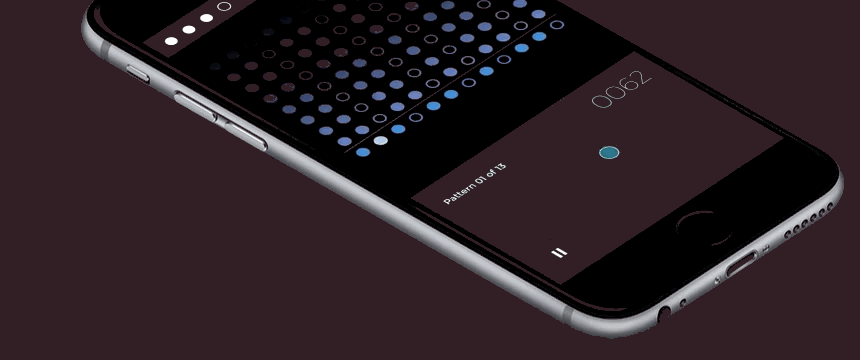Welcome to life after Damien Chazelle’s Whiplash, where every music game feels incomplete without J.K. Simmons’ Fletcher yelling, “are you rushing or are you dragging?” While Whiplash does not yet exist in game form, at least there’s Clapping Music, which may induce similar levels of angst in players.
The game, which was made by Touchpress, London Sinfonietta, and Queen Mary University of London, challenges players to learn Steve Reich’s 1972 composition, “Clapping Music.” This is easier said than done. “Clapping Music,” like much of Reich’s work, uses a technique called phasing in which multiple players play the same sequence at slightly different speeds. In “Clapping Music” these shifts are less gradual: one player continuing the same 12-beat sequence while others gradually shift the sequence over by one beat. These overlapping sequences created an interesting layered effect before ultimately reuniting in the final phase. This phenomenon is more easily understood through animation, so here’s a handy visualization:
And here’s Steve Reich explaining the “Clapping Music” game:
On a superficial level, Clapping Music is Rock Band with better music. (yeah, I said it) The beats of clapping music are displayed as scrolling rows of dots and your score is a function of how accurately you keep up with the music. The difference here is that every time you get comfortable with the pattern, the rules of the game shift under your fingertips. It’s a maddening experience, at least until you get the phasing right.
Whereas this might feel cheap in other games, Clapping Music uses this mechanic to teach a concept that is hard to intuit. Phasing is the kind of thing one learns by doing. For those who learn best, as measured by Clapping Music’s high score leaderboard, an opportunity to perform the song on stage with London Sinfonietta beckons. For everyone else, there’s the less tangible reward of contributing to research into how games can help teach musical skills by playing Clapping Music. All of these outcomes sound preferable to having Fletcher throw a cymbal at your head.
